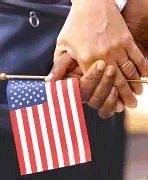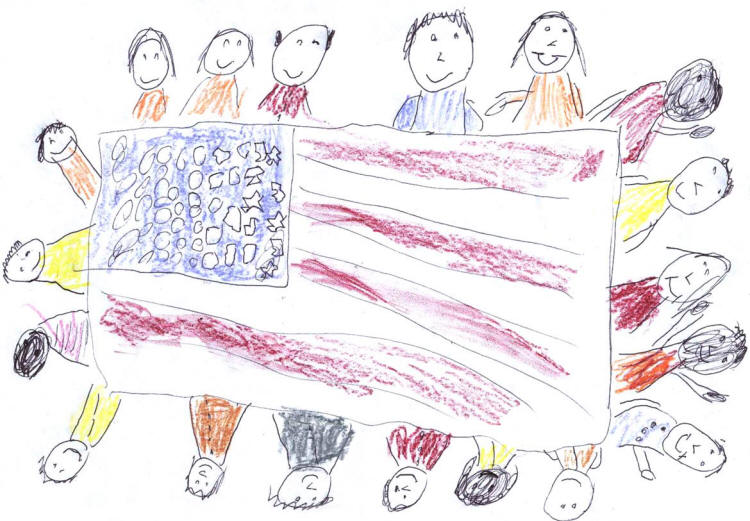Patriotism, May It Never Be Lost!
Patriotism denotes positive and supportive attitudes to a 'fatherland' (Latin patria, Greek patris, πατρίς), by individuals and groups. The 'fatherland' (or 'motherland') can be a region or a city, but patriotism usually applies to a nation and/or a nation-state.
Patriotism covers such attitudes as: pride in its achievements and culture, the desire to preserve its character and the basis of the culture, and identification with other members of the nation.
Patriotism is closely associated with nationalism, and is often used as a synonym for it. Strictly speaking, nationalism is an ideology - but it often promotes patriotic attitudes as desirable and appropriate.
Patriotism in our view is a mind set that believes in supporting our countries policies through the election of leaders that embody to love of freedom, liberty, and the pursuit of happiness.
Constitution Day
Constitution Day (or Citizenship Day) is an American federal observance that recognizes the adoption of the United States Constitution and those who have become U.S. citizens. It is normally observed on September 17, the day the U.S. Constitutional Convention signed the Constitution in 1787 in Philadelphia.
When Constitution Day falls on a weekend or on another holiday, schools and other institutions observe the holiday on an adjacent weekday. This was the case in 2005 and 2011, when Constitution Day was generally observed on Friday, September 16, and 2006 when the holiday was observed on Monday, September 18.
The law establishing the present holiday was created in 2004 with the passage of an amendment by Senator Robert Byrd to the Omnibus spending bill of 2004. Before this law was enacted, the holiday was known as "Citizenship Day". In addition to renaming the holiday "Constitution Day and Citizenship Day," the act mandates that all publicly funded educational institutions, and all federal agencies, provide educational programming on the history of the American Constitution on that day. In May 2005, the United States Department of Education announced the enactment of this law and that it would apply to any school receiving federal funds of any kind.
My Thoughts

Beautiful
"How do I respond when I see that in some Islamic countries there is vitriolic hatred for America? I'll tell you how I respond: I'm amazed. I'm amazed that there is such misunderstanding of what our country is about, that people would hate us. I am, I am -- like most Americans, I just can't believe it. Because I know how good we are, and we've go to do a better job of making our case. We've got to do a better job of explaining to the people in the Middle East, for example, that we don't fight a war against Islam or Muslims. We don't hold any religion accountable. We're fighting evil. And these murderers have hijacked a great religion in order to justify their evil deeds. And we cannot let it stand." -- George W. Bush, press conference
A Silent Tribute To Our Heroes
Memorial Day
Memorial Day was originally known as Decoration Day because it was a time set aside to honor the nation's Civil War dead by decorating their graves. It was first widely observed on May 30,1868, to commemorate the sacrifices of Civil War soldiers, by proclamation of General John A. Logan of the Grand Army of the Republic, an organization of former sailors and soldiers. On May 5, 1868, Logan declared in General Order No. 11 that "...30th day of May, 1868 designated for the purpose of strewing with flowers or otherwise decorating the graves of comrades who died in defense of their country..."



